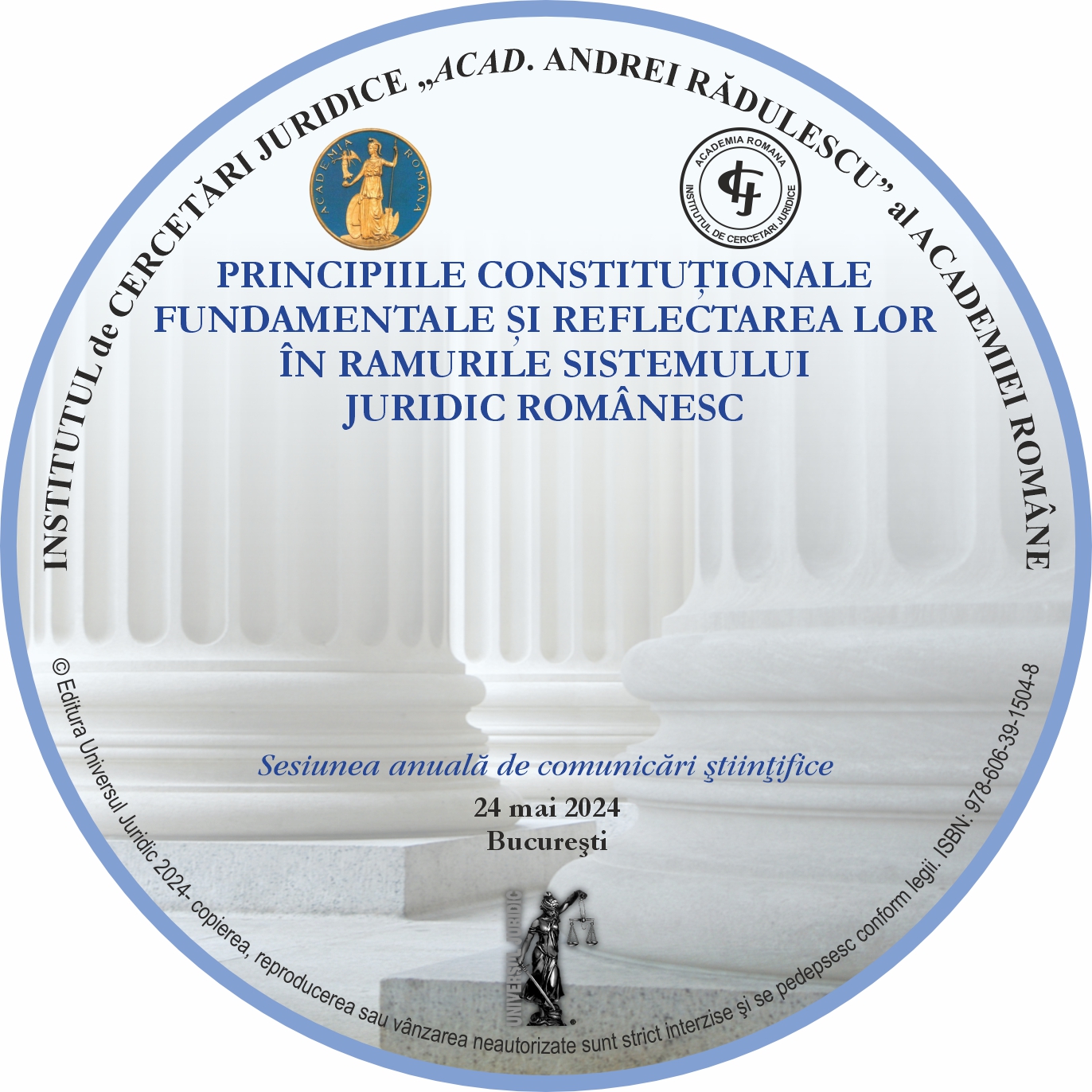De la inviolabilitatea domiciliului la violarea de domiciliu. Noi reflecții asupra garanțiilor constituționale în materia percheziției domiciliare
From The Inviolability of The Domicile to The Violation of The Domicile. New Reflections on Constitutional Guarantees in The Matter of Home Searches
Author(s): Giulia Şologon
Subject(s): Criminal Law
Published by: Universul Juridic
Keywords: Criminalization; Privacy; Home; Professional Premises; Search Warrant;
Summary/Abstract: Although privacy as a social value inherent to human beings seems to be a critical point in all societies, the right to private life has a volatile existence, with unclear boundaries and limits, unable to be defined or clearly classified. It is a right that finds its content on a case-by-case basis and, from a conceptual perspective, operates through the mechanism of connecting jurisprudence with various manifestations of everyday life. The social perspective on the right to privacy is translated legally into the right to private life. In the realm of constitutional guarantees, one of the reflections of the right to private life is the principle of the inviolability of the home. This study aims to conduct a careful analysis of the constitutional principle of the inviolability of the home as a form of manifestation of the right to private life, practical issues of substantive law in the field of criminalizations of offenses that ensure the protection of social values inherent to this right, the constitutional and criminal procedural law limits of the guarantee, the hypotheses in which the dispensation of consent operates in the case of entering an individual's home, as well as issues in the field of specific evidential procedure – the house search. Searches conducted in an individual's home or workplace are procedural mechanisms that, by their nature and natural course of conduct, contain the potential to impact physical and psychological integrity, relative to the security feeling that an individual experiences in an environment deemed personal. The criminalization of acts that infringe on private life is one of the levers through which the state fulfills its positive obligations to take measures to protect an individual's privacy. However, these criminalizations must be understood nuanced and subject to the expressly instituted legal exceptions that allow, under certain conditions, entry into a person's home, even in the absence of expressed consent. In this context, the constituting legislator has attributed superior values for the priority implementation of enforcement measures correlated with an arrest warrant or a judicial decision, for removing dangers related to the life, physical integrity, or property of a person, for ensuring the defense of national security or public order, as well as in preventing the spread of an epidemic.
Book: Principiile constituționale fundamentale și reflectarea lor în ramurile sistemului juridic românesc
- Page Range: 349-359
- Page Count: 11
- Publication Year: 2024
- Language: Romanian
- Content File-PDF

